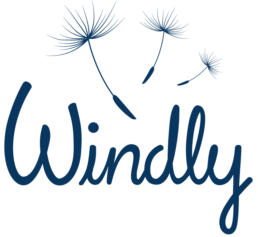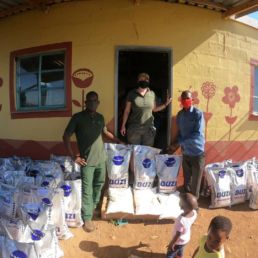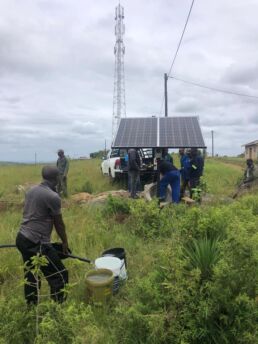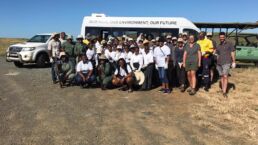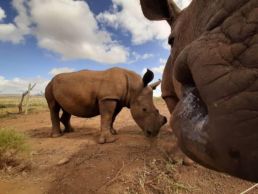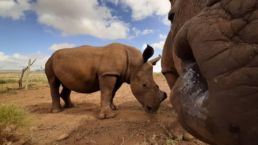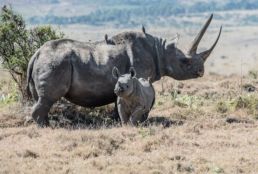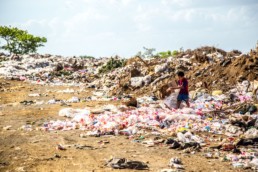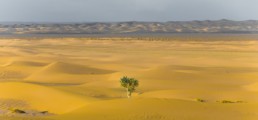Water Insecurity
Water Insecurity
Global water insecurity, or water scarcity, can be understood in several ways. UN Water defines water insecurity as, “The capacity of a population to safeguard sustainable access to adequate quantities of acceptable quality water for sustaining livelihoods, human well-being, and socio-economic development, for ensuring protection against water-borne pollution and water-related disasters, and for preserving ecosystems in a climate of peace and political stability.”.
Water security impacts most, if not all, aspects of life. From agriculture to food preparation to personal hygiene to public health to energy to cultural or religious activities and recreation, water touches all aspects of life. In this era of climate change, water can be life-affirming and life-destroying. Too much water at the wrong time or too quickly can cause unmanageable and devastating floods causing disease outbreaks, ruining crops, and destroying homes. Too little water can cause drought, desertification, and increased conflict for scarce resources. Increased coefficients of variation (differing from the average) can cause crops to be ruined by surprise rainfalls following a harvest or poor harvests due to less rainfall than normal.
Most horrifyingly, every 90 seconds a child under 5 years old dies because of lack of access to clean water and sanitation.
The Water-Energy-Food (WEF) nexus is of particular interest to development practitioners as we view these issues not as siloed but as deeply interconnected. Issues in water security directly affect food and energy security.
Cultivating global water security requires a balance of localized action, led by local leaders with the global support of knowledge sharing and finance for improvements. COVID-19 will have deep impacts on long-term water security as budgets and policies are redirected from long-term water systems to immediate life-saving support. The complexity of the challenge of water security and its immediacy should not turn people away from this issue; on the contrary, solutions to water insecurity exist — it’s a matter of amplifying, connecting, and financing these solutions at a scale that will drive impactful change.
Zululand Conservation Trust
Zululand Conservation Trust
Passionately preserving, protecting and nurturing the land and its wonderful wildlife for future generations.

Zululand, South Africa
About this project
Our mission at the Zululand Conservation Trust is a commitment to the conservation of endangered species whilst maintaining and supporting partnerships with neighbouring communities. The Trust was established in 2011 to achieve a common dream between a group of devoted wildlife enthusiasts. Based in northern Zululand, we recognise the fundamental need to involve, empower, educate and support local communities, in order to achieve effective and lasting conservation.
"The Zululand Conservation Trust has a small team with small overheads, and so when you donate money towards our projects you can be guaranteed that 100% of those funds are going straight back into conservation and community. We work closely with a reserve surrounded by local communities which we have built long term relationships with, and so community funding is helping the extended conservation family surrounding a protected area". - Frances Hannah
Uthingo Foundation
Uthingo Foundation
To enable communities and wildlife in Southern Africa to coexist with reduced/no conflict by means of empowerment, education and investment.
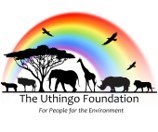
Zululand, South Africa
About Uthingo Foundation
The Uthingo Foundation, is a charitable foundation dedicated to advancing the connectivity and understanding of the public in the conservation, protection and improvement of the physical and natural environment of wilderness areas in Southern Africa. With the dedication of our volunteers, and partners, we strive to provide structured education, sports and empowerment programmes to create a positive attitude towards wildlife and its conservation.
What achievement are you most proud of for your organisation?"Definitely installing the borehole to Emabhokisini Village – from the community having to take on a steep hill to transport dirty, infested water they shared with livestock to now having access to fresh, clean water, improving their livelihoods, health and wellbeing. It was our first project and we were so proud to have completed it with the support and work of the local community". - Marumo Nene
Zululand Rhino Orphanage
Zululand Rhino Orphanage
Passionately preserving, protecting and nurturing the land and its wonderful wildlife for future generations.

Zululand, South Africa
About this project
Our mission at the Zululand Conservation Trust is a commitment to the conservation of endangered species whilst maintaining and supporting partnerships with neighbouring communities. The Trust was established in 2011 to achieve a common dream between a group of devoted wildlife enthusiasts. Based in northern Zululand, we recognise the fundamental need to involve, empower, educate and support local communities, in order to achieve effective and lasting conservation.
"The Zululand Conservation Trust has a small team with small overheads, and so when you donate money towards our projects you can be guaranteed that 100% of those funds are going straight back into conservation and community. We work closely with a reserve surrounded by local communities which we have built long term relationships with, and so community funding is helping the extended conservation family surrounding a protected area". - Frances Hannah
Template page
Zululand Rhino Orphanage
Passionately preserving, protecting and nurturing the land and its wonderful wildlife for future generations.

Zululand Region
About this project
Our mission at the Zululand Conservation Trust is a commitment to the conservation of endangered species whilst maintaining and supporting partnerships with neighbouring communities. The Trust was established in 2011 to achieve a common dream between a group of devoted wildlife enthusiasts. Based in northern Zululand, we recognise the fundamental need to involve, empower, educate and support local communities, in order to achieve effective and lasting conservation.
The Zululand Conservation Trust has a small team with small overheads, and so when you donate money towards our projects you can be guaranteed that 100% of those funds are going straight back into conservation and community. We work closely with a reserve surrounded by local communities which we have built long term relationships with, and so community funding is helping the extended conservation family surrounding a protected area. - Frances Hannah
The Zululand Conservation Trust has a small team with small overheads, and so when you donate money towards our projects you can be guaranteed that 100% of those funds are going straight back into conservation and community. We work closely with a reserve surrounded by local communities which we have built long term relationships with, and so community funding is helping the extended conservation family surrounding a protected area. - Frances Hannah
Windly Conversations
Plastics
Plastics
Over 300 tones of plastic waste is generated each year – nearly the same weight as the entire human population, approximately 60% of which ends up in landfills.
Single use plastics in particular are detrimental to our environments, especially our marine environment where fish and other marine mammals ingest or get caught in plastics. Additionally, microplastics break down in the water and we are only beginning to understand the affect of this on our food systems and the ocean ecosystem’s health in general.
We’re keen to connect with grassroots organizations around the world working to solve the issue of plastics, particularly ocean plastics. Whether upcycling plastics, recovering plastic litter, creating alternative waste streams, or creating alternatives – we want to hear about it!
Shoot us a message and let us know who we should know.
Learn more below:
- https://www.unenvironment.org/interactive/beat-plastic-pollution/
- https://www.nationalgeographic.com/magazine/2018/06/plastic-planet-waste-pollution-trash-crisis/
- https://www.pewtrusts.org/en/projects/preventing-ocean-plastics
- https://www.iucn.org/resources/issues-briefs/marine-plastics
Climate Change
Climate Change
Climate change, previously known as global warming, is arguably the biggest modern threat to our human existence here on earth.
What do we know?
- The vast majority of scientists are in agreement that climate change is happening, and is caused by human activity (these are called anthropogenic causes).
- The main concern is not only the extent of change, but the rate of change, or how quickly it’s happening.
- Climate change deniers often dispute the science by saying that some areas are seeing colder temperatures and/or increased snowstorms. There are two responses to this:
- (1) There is a massive difference in weather versus climate – weather is isolated events whereas climate is weather patterns over time – in other words, we can have colder weather events while the climate as a whole is still warming, and
- (2) Changing the name from global warming to climate change represents the current reality better – climate change does not necessarily mean an immediate warming climate everywhere but rather rapid, extreme changes in storms, sea level, sea salinity, ice caps, permafrost, desertification, etc.
One of the key concepts to understanding climate change is the concept of positive feedback cycles and thresholds. In short, a positive feedback cycle is a system that is self-reinforcing. In the context of climate change, warming temperatures in the Arctic circle lead to permafrost melting, which releases more CO2 and other greenhouse gases, further warming the atmosphere, melting more permafrost, releasing more CO2, and so on. The concept of thresholds also means that at a certain point, a “tipping point” is reached, where all of these systems rapidly change at a rate we are unable to control.
